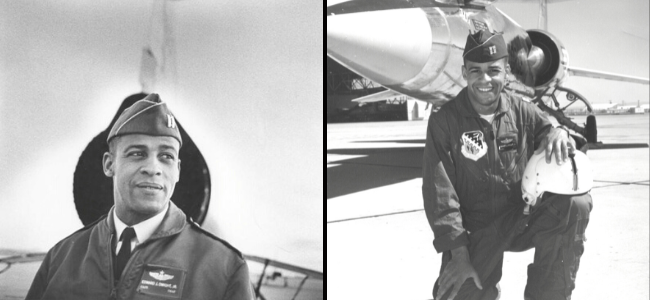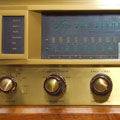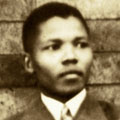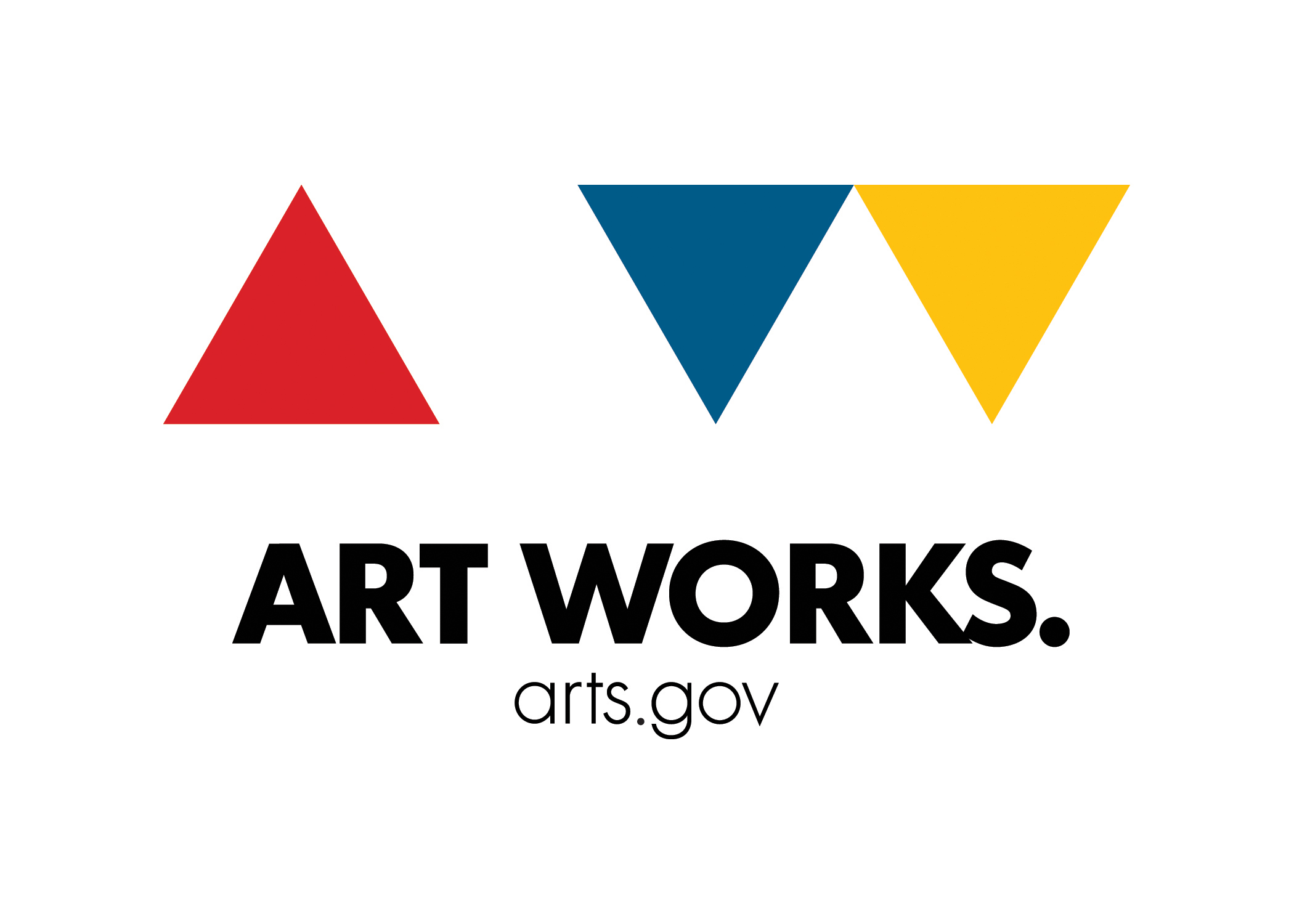Joe Richman: From PRX’s Radiotopia, this is Radio Diaries. I’m Joe Richman.
President Kennedy: Mr. Speaker, Mr. Vice President, my co-partners in government.
Joe Richman: In the 1960s, President Kennedy had no shortage of issues to bring to Congress – the war in Vietnam, the Civil Rights Movement, and the Space Race, which the U.S. was losing to the Soviet Union. So, on May 25th, 1961, Kennedy pledged to do something no other country had done.
President Kennedy: I believe that this nation should commit itself to achieving the goal, before this decade is out, of landing a man on the moon and returning him safely to the earth.
Joe Richman: Kennedy’s challenge brought up a lot of questions. How soon could this happen? Who would go? How much would it cost? Here’s Radio Diaries producer, Mycah Hazel, to tell you more about the story.
Mycah Hazel: Most of the country was excited by Kennedy’s vision. But many Black Americans resented the Space Race because it cost money that might’ve gone to help Black communities, just to send white men to space.
But months after this speech, a new astronaut candidate entered the program, who had the potential to bridge the gap between the Civil Rights Movement and the Space Race. Today on the show, The Almost Astronaut.
Ed Dwight: My name is Ed Dwight, the first Black astronaut candidate in the United States of America.
[Soundbite of music].
I was born in Kansas City, Kansas and I grew up on a small farm out on the edge of town. Close to this place was the local civilian airport and the planes were mostly pre-war planes, bi planes. This is 1933.
And as a little kid, I was fascinated by the whole idea of getting off the ground. They could just twist and turn and do anything they wanted! What a sense of freedom one had! However, I never, ever fancied myself as doing that because these guys were white and I was Black.
Well one day, I went up to pick up my newspaper and I noticed on the front page a picture of a Black pilot standing on the wing of an F-86 saber jet. It just kind of blew my mind that, my God, they’re letting black people fly!
[Soundbite of music]
It was August 1953. I just joined the airforce!
Archival: You will be recognized throughout the world as one of America’s knights of the sky, an airforce pilot.
Ed Dwight: I was the only Black officer pilot just about every base I was stationed. I was a little bitty guy, I’m five foot four inches tall. But my academics were always in the top five percent. I got awards after awards and I was on the fast track right away. I got promoted to first lieutenant early, I got promoted to captain early. I mean, I loved the Air Force with a passion! And I was just happy as could be. I couldn’t have a better life. I had no intention of becoming an astronaut, or anything of the sort.
Archival: In 1958, the dawn of the Space Age!
Charles Bolden: My name is Charles Bolden. I became the first appointed black administrator of NASA.
Laurens Grant: I’m Laurens Grant. I’m the director of the documentary, Black in Space: Breaking the Color Barrier.
Charles Bolden: Every time we were trying to do something in space, we were second because the Soviets got there before we could get there.
Archival: Lyka, first space traveler, was ready for the takeoff and here it is!
Laurens Grant: The Soviets beat us with Sputnik. They beat us with, you know, Yuri Gagarin, the first man up in space.
Archival: A shocked America attempted to launch a grapefruit-sized satellite with disastrous results!
Laurens Grant: And, you know, on top of it, the Soviet Union just put together a PR campaign, looking at us and saying, “Well, how can you be a leader of the free world if you don’t even treat all your citizens equally?
Archival: Oto America.
Laurens Grant: You know, they put newsreels of hoses and dogs attacking civil rights protesters and marchers.
Archival: Ku Klux Klan!
Charles Bolden: And so if we were going to be the cradle for democracy, we had to do something to show that we really meant that.
Laurens Grant: So you’ve got Edward R. Murrow, who was head of the U.S. Information Service, writing letters to the Kennedy administration saying, “Why don’t we put the first nonwhite man in space?” Aids to Bobby Kennedy and the president himself reach out to the Air Force.
Charles Bolden: And they said, “Okay, give us a list of all the Black pilots who are going through test pilot school.” And the answer came in, “Ed Dwight.”
Ed Dwight: On November 4, 1961, I got this letter asking me if I would consider going to experimental test pilot school for the astronaut training program. My mind went berserk!
I took this letter to my commanders, saying, “What do you think?” And they said “Forget it, this whole thing is political! If you think for a minute that they’re gonna let you succeed at being some negro astronaut guy, it ain’t going to happen.” I almost threw the letter away.
But my mother got involved. And she was telling me some things about how the race could be uplifted by example and inspiration. I didn’t look at myself as a savior of my race! But my mother was never wrong. So I just went for it and in four days, I was sent down to Edwards Air Force Base to go into this training program.
Archival: This is the 65-square-mile heart of Edwards Air Force Base. The area surrounding this prime facility permits the testing of new manned and unmanned aircraft and missiles, without endangering the civilian populace.
Ed Dwight: Edwards was in the middle of the Mojave Desert. It’s arid, very dry. And it’s hard, flat desert.
Woodson Fountain: I’m Woodson Fountain and I was out at Edwards Air Force Base in the early sixties as an engineer. I mean, these are the top-notch fighter pilots that were wanting to become astronauts.
Laurens Grant: The head of the training course is the inimitable icon, Chuck Yeager.
Chuck Yeager (Archival): You know, we’re turning out an entirely different breed of pilot here at the school.
Woodson Fountain: He was the first pilot to fly faster than the speed of sound.
Laurens: Chuck Yeager was everybody’s hero. He had the swagger, he had the personality, and his word held sway on who to select or not select to be an astronaut.
Chuck Yeager: These guys will be working on programs all the way from the surface of the earth to space. They’ll probably be flying vehicles that are unheard of today.
Archival: This project candidate is preparing for stress.
Charles Bolden: We didn’t know what it was going to be like to go to space and so medical people came up with tests, sometimes wild tests.
Archival: The weight of eight gravities will thrust upon him as he rides the human centrifuge.
Ed Dwight: In the centrifuge training, you get all the rumbling and the noise and the bumping of going on a full tilt space mission.
Charles Bolden: Things like, we call it the vomit comet, going into an airplane that pulls up and then pushes over to create about 20 seconds worth of weightlessness, destined to make almost anybody sick.
Archival: His reactions are studied. The results will indicate how he fared under multiple gravity forces.
Ed Dwight: They tried to blow our eardrums out, to see how long it would take you to recover. They penetrated every orifice in your body and they made a lot of new orifices. Those are the kinds of things they did to your body to see how far they could stretch it before it kind of broke.
I had never faced competition like that. And so to be selected out of this larger class, I gotta be smarter, I gotta be more quick, I gotta be this, I gotta be that. But I have a lot of confidence in my ability to do things. Against all odds, I was succeeding in the training program.
[Soundbite of Music]
Archival: These men are astronauts, healthy volunteers who are being trained for the first U.S. spaceflight.
Laurens Grant: Historically, the first classes of astronauts were white male astronauts. The fact that possibly a Black man may be involved in that- that was just so exciting and galvanizing, particularly for the Black community.
It’s April 18, 1963. Jet Magazine comes out. The Headline is “Report on First Negro Astronaut Trainee” and there, in all of his heroic glamour, is Captain Ed Dwight, in his military uniform, entering everyone’s home on the cover of Jet Magazine. And that just sets off such a press whirlwind.
Ed Dwight: I was the savior of the Black race all of a sudden. Within months of all of this happening, I was on the cover of magazines all over the world.
Archival: The children meet Captain Dwight on the windswept air base where he received a part of his special training. The friendly pilot is kept busy answering their questions.
Ed: I would leave the base and make speeches to little kids that were six years old, and I would talk about my childhood.
Archival: Keith asks Captain Dwight, “How does one become an astronaut?” “Well Keith, one must study hard in order to get anywhere in life. And if you study hard, Keith, you too can become an astronaut.”
Ed Dwight: I’m kind of an ambassador for the space program, I’m an ambassador for the black community. And I said, this is really, really cool.
Laurens Grant: Especially at a time where there’s so much tumult and protests, you always want a hero. You want a feel-good moment, and Ed Dwight, at that time, was that.
Ed Dwight: In the meantime, the instructors, the classmates, everybody at Edwards Air Force Base, were livid. We’re working our butts off so many days a week and this clown is going and giving speeches! Chuck Yeager hated the whole idea of me making a speech to anybody.
Laurens Grant: Ed Dwight was just seen as “Kennedy’s boy.” Possibly Chuck Yeager is thinking, “Who is this dude? He’s just a pilot. Why is he getting all of this attention?”
Ed Dwight: I didn’t learn about this ‘til later. Colonel Yeager called the students in, and these are my fellow students, and said, “You have to isolate him. Don’t drink with him. Don’t invite him to your parties.” The whole idea was to show these white students that we got to discourage him.
Woodson Fountain: So Ed would say these things to me that he was going through.
Ed Dwight: We’d be assigned a flight, we would take off and the guy wouldn’t say anything. I’d say, “How am I doing?” And they’d give me a snarky answer, “Well if you’re doing something wrong, I’d tell you!”
Woodson Fountain: He would tell me all these things, like that Colonel Yeager would call Ed into his office and say, ‘Are you ready to quit yet?’
Ed Dwight: His favorite thing was he had this yellow line paper that we always used, and he had a bunch of names on it, written. And he would unfold that and lay it out. And he says, “Captain Dwight, I got 150 white pilots here. All 150 of them are better than you could possibly be!”
At the end of every one of these meetings, he’d get up out of his chair, he’d put his arm around my shoulder and he would say, ‘If you need any help with anything, Captain Dwight, I’m here to help you.’
Laurens Grant: This is a excerpt from Chuck Yeager’s autobiography. The hardcover came out in July 1985. “Ed Dwight was an average pilot with an average academic background. He wasn’t a bad pilot, but he wasn’t exceptionally talented either. Flying with a good bunch in a squadron, he would probably get by. But he just couldn’t compete in the space course against the best of the crop of experienced military test pilots.”
It just seems like he wanted to put something down on record from his point of view. Like “Oh, he was average. He wasn’t that great. But I’m not racist because good pilots are just good pilots, whether you’re white or Black.”
Archival: Y’all know why you’re here today and why we’re here. We’d like to introduce the new group of 14 astronauts. (Deke Slayton)
Laurens: October 18, 1963
Ed: This is the day that we were graduating. This is the end of training.
Laurens: They had the big press conference, the big reveal to announce this astronaut class.
Ed: The whole class was in this room and every one of those guys wanted a place on that astronaut list.
Laurens: And all the men come out onto this dyas.
Ed: And the world was waiting with anticipation on this announcement
Archival: Okay with that, I’ll let each individual introduce himself from right to left…I’m Captain Bill Anders, Kirtland Air Force Base, New Mexico. Captain Charles A Basset from Dayton, Ohio. Lieutenant Alan Bean, Jacksonville Florida, hometown of Fort Worth,Texas.
Charlie: In spite of the fact that there was pressure from the president of the United States to select a black astronaut, when the list came out, all white. No Ed Dwight.
Archival: Okay, we are open to questioning at this time.
Laurens: Clearly, the press was expecting Ed Dwight to be there, but he wasn’t selected. And they just played it off like “nope!”
Archival: Was there a Negro boy in the last 30 or so that you brought here for consideration? No, there was not.
Archival: Okay, I guess we’re through, Paul. (Deke Slayton)
Laurens: The deafening silence to me speaks volumes.
Laurens: NASA doesn’t really have to explain who they select to be astronauts, so his whole candidacy is shrouded in some mystery.
Charlie: It’s he said, she said so we may never know. The assumption on my part, as a Black man, is that he did not make it because of race. That’s not a statement of fact. That is a statement of gut feel.
Charlie: You know, we hadn’t even integrated schools and you’re talking about sending a black guy to the moon? Give me a break. I don’t want him in my school so why should I put him in my spacecraft?
Archival: Okay, everybody rolling? Rolling. Rolling.
Ed: I’d been out of training for a year or so and there was a press conference on the high desert out there where all these reporters asked me all these questions.
Laurens: If you’re not selected, after so much attention, people are going to wonder the reasons why.
Archival: First, if we may, why aren’t you an astronaut now?
Archival (Ed): I couldn’t begin to tell you. I don’t know.
Archival: Are you now in fact completely out of the astronaut program? Is there a possibility of you ever being back in?
Archival (Ed): I don’t know. I don’t have any idea.
Ed: They asked me questions about racism in the space program. What they wanted from me was there was a whole swath of prejudice in the military, and I was not going to give that to them.
Archival: Do you feel that what’s happened to you is a setback for a civil rights opportunity?
Archival (Ed): I would rather not comment on that.
Ed: I wasn’t scared, upset, I wasn’t anything! I was kind of numb.
I had planned on being in this service for 30 years. I was going to be a general in this man’s Air Force and I was on the way to that dream, had I not done that astronaut thing, I was on the way.
Laurens: After the press conference, a year later, he would resign.
Ed: I just wiped this astronaut thing off, I erased that board. I said “I resign from the Air Force.”I drove off that base and I pointed my car north to Denver and I couldn’t look back.
Archival: And for all of the people back on Earth, the crew of Apollo 8 has a message that we would like to send to you.
Laurens: Ed Dwight’s class, was quite extraordinary and would go on, some of them, to become household names. Including 2 who went to the moon, Buzz Aldrin and Michael Collins, and also Bill Anders who famously, from space, read from the book of Genesis.
Archival: We are now approaching lunar sunrise.
Charlie: Think of what it would’ve meant for a black kid in a segregated school to see somebody that looked like him in Apollo 8 as they circled the moon and as one of the crew members said, “We came all this distance to study the moon and we discovered our own home planet earth.”
Archival: “In the beginning, God created the heaven and the earth. And the earth was without form and void and darkness was upon the face of the deep. And the spirit of God moved upon the face of the water, and God said, ‘Let there be light.’
Charlie: That could’ve been Ed Dwight.
Joe Richman: It took more than two decades after Ed Dwight for the U.S. to send the first Black astronaut into space his name was Guion Bluford. Today Ed Dwight is 88 and lives in Denver, Colorado. After leaving the military he started a new career as a sculptor and specializes in lesser-known Black historical figures, sort of like himself. You can see his work on EdDwight.com








